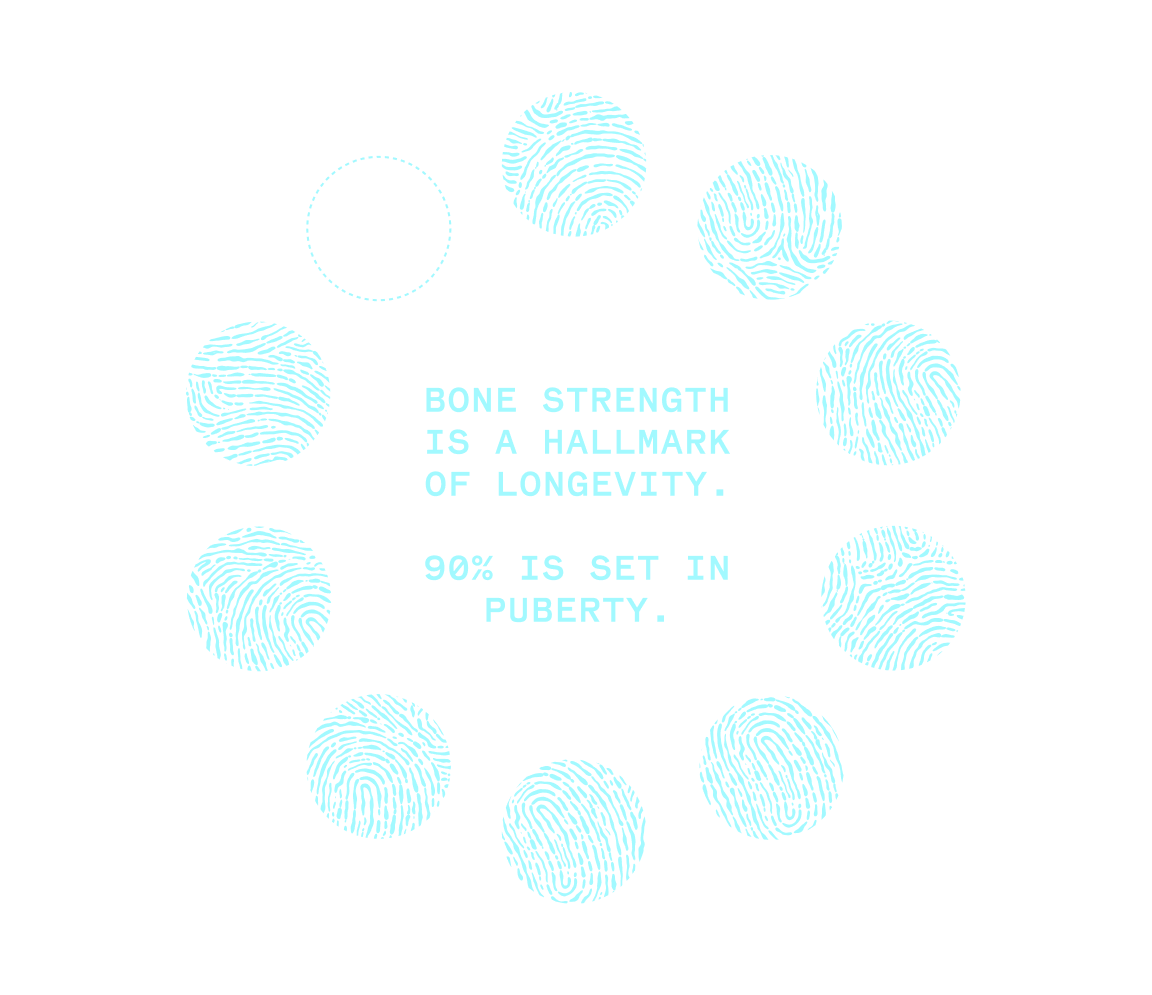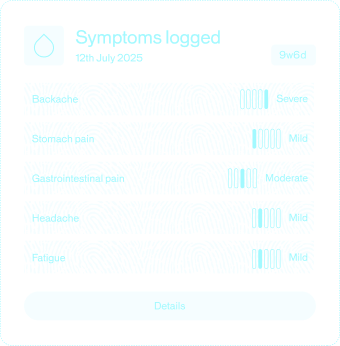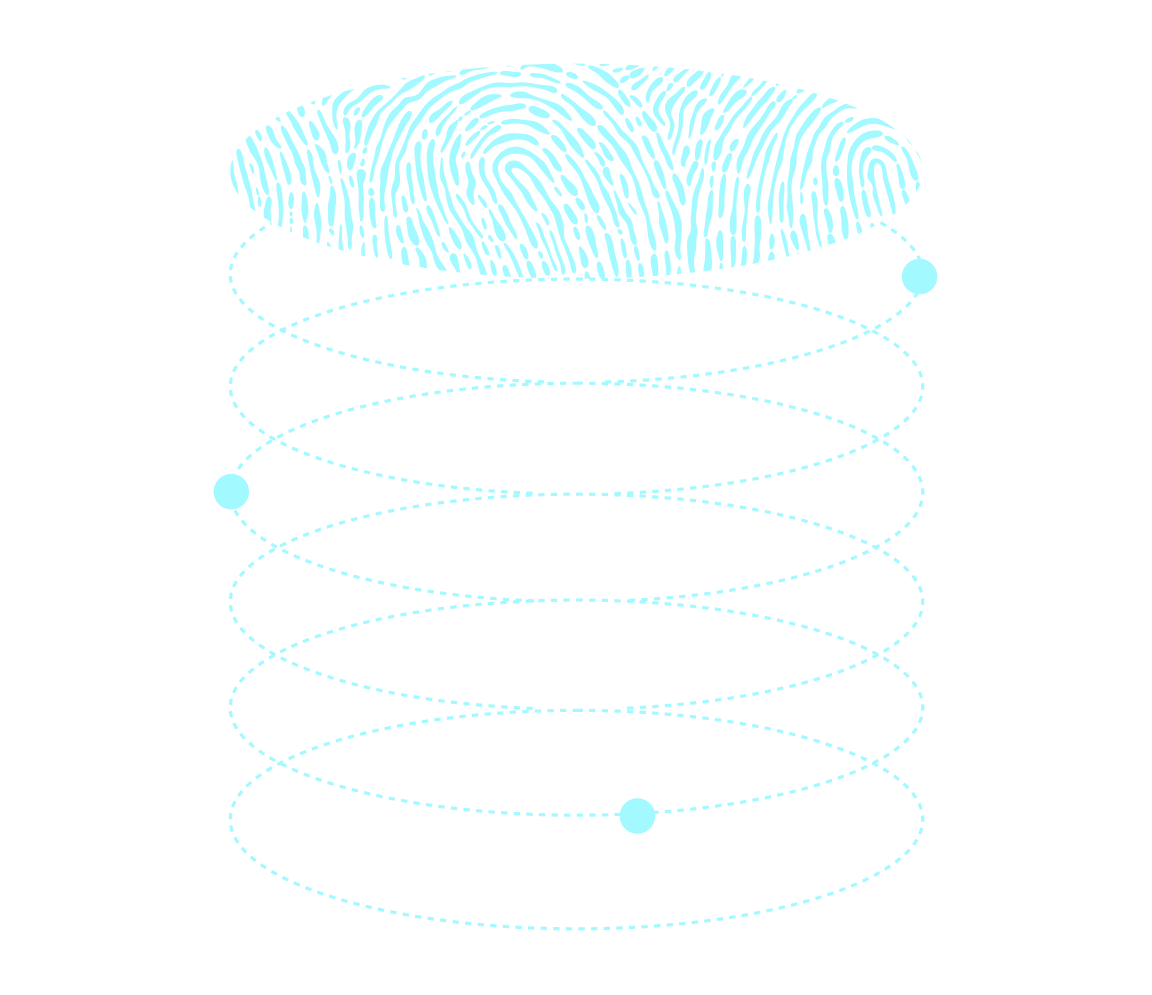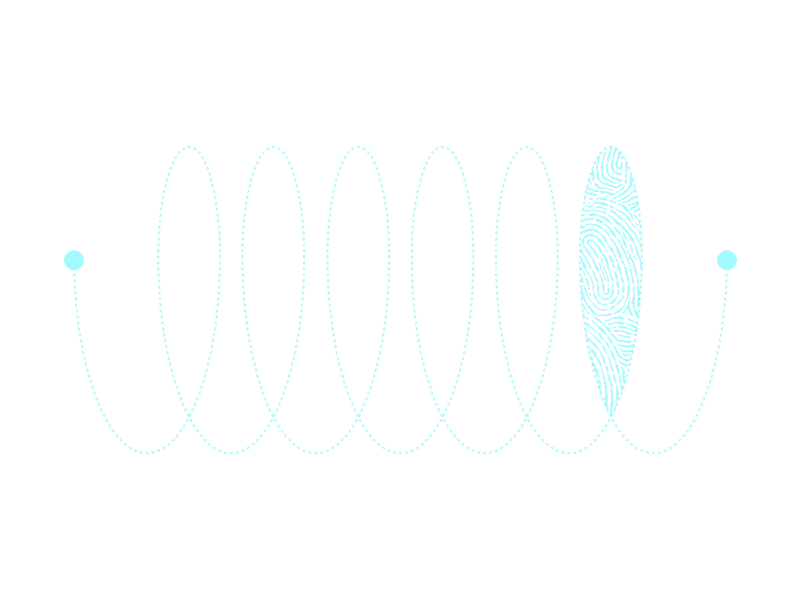

The desire to improve, to strive, to create a lasting impact is deeply human. It's universally embedded in our DNA. And while there's plenty we can pass on in life, nothing comes close to the value of Generational Health.

It moves through our lifetime, influencing us long before we're born and echoing long after we're gone. Our experience draws from our entire family’s history and the events of a lifetime to build a healthier foundation for the next generation (literally).

That’s what generation after generation of wisdom offers. Our intelligent platform lets you direct the trajectory of your health, compounding decades of data, history, insight and expertise into the most detailed picture ever recorded—and preemptive care you’ve always sought out for your family.

Generational Health isn’t about being perfect. It’s about seeing your journey in context and understanding your health better than ever. Knowing you’re giving your children the best possible start in life. Having preventative support and care tailored to what you need. And making the right choices when they matter most.


Life is made up of pivotal stages, where your health decisions don’t just add up, they multiply. Key points where investing in your longevity and vitality can ripple across generations. And pay dividends for decades.
Your first five years establish the foundation of your lifelong health. Your brain, metabolism, stress regulation, immune system—everything is developing faster than at any other point in life. The good news? You have the power to shape it from the very beginning.

Your brain is a rocket ship in these early years—forming over one million new connections per second. By age 3, it’s 80% developed. By kindergarten it’s nearly complete, defining how you think, learn, and regulate emotions for life.
Your microbiome—the diverse ecosystem that helps control metabolism, immune function and even mood—is established and seeded within the first 1000 days of life. It’s also shaped by our environment, with studies showing that children raised on farms have 30% lower allergy rates.
Your body and brain don’t just grow—they adapt to your surroundings. Adverse Childhood Experiences (ACEs), early stress and instability can permanently reshape hormone regulation, neurodevelopment and immune function, more than doubling the risk of heart disease, depression, and metabolic disorders later in life. But strong human connection acts as a shield, wiring resilience into the nervous system.
Puberty is more than growth—it’s a full-system reboot. Hormones surge, brain circuits rewire and lifelong patterns are set in motion. What happens in this messy, elastic window sets the tone for everything that follows and can permanently impact our longevity, from mental health to fertility, metabolism to immune function.

Puberty activates a surge in sex hormones like estrogen, progesterone and testosterone. These shifts impact adrenal and thyroid health, establishing the body’s endocrine blueprint. Imbalances during this stage—whether internal (early puberty, PCOS) or external (exposure to disruptors like BPA or phthalates)—are associated with a 2–3× increased risk of reproductive disorders, metabolic syndrome, and hormone-related cancers later in life.
The adolescent brain is pruning and rewiring at high speed, especially in the prefrontal cortex where decision-making, impulse control and emotional regulation are under construction. Over 50% of lifetime mental health conditions emerge during this stage, but early support, structure and self-awareness can keep us grounded and set us up to thrive throughout life, emotionally and physically.
Adolescence is also a pivotal time for metabolic health, with lasting effects on body composition, blood sugar regulation and, significantly, bone density. While strong bones are a key hallmark for longevity, low mineral density and osteoporosis are linked to higher mortality. With 90% of our bone mass set during puberty, it’s an important one to know about.
Pregnancy is one of the most metabolically and hormonally intense periods of life, and also arguably the most revealing windows into your health. What happens during these nine months is akin to a biological stress test—uncovering hidden risks, shifting your physiology and shaping the future of two generations at once. But, by knowing your body better than ever, it’s also a chance to intervene years before you might have otherwise acted.

Pregnancy rewires your immune system to protect both you and your baby. Tracking these changes offers a rare opportunity to spot and address autoimmune and inflammation issues before they become chronic. It’s also a chance to proactively spot fluctuations in hormone levels and thyroid function, which carry risk for conditions like postpartum thyroiditis, which affects up to 10% of women.
Blood volume expands by 40–50% during pregnancy. Heart rate increases by 10-20 beats per minute. It’s basically a natural heart health stress test, and hypertensive disorders are the trickiest obstacles. Women who experience hypertension and preeclampsia face up to 7x higher risk of developing heart disease later in life. Knowing this early gives you a head start on prevention, to ensure healthy heart support post pregnancy and return to your baselines or better.
The environment you create during pregnancy—nutrients, sleep, stress, movement—influences your baby’s gene expression for life. This is epigenetics in action, and the more aware you are of the signals you send, the more you can actively shape your child’s long-term risk for obesity, asthma and neurodevelopmental health.
The hormonal fluctuations of pregnancy, birth and lactation kickstart extreme physiological transformations unparalleled across our life. Indeed, the care and recovery a woman receives in the first 40 days postpartum will impact her health for the next 40 years. Care should be a proactive, long-term strategy to counteract the risks of heart disease, diabetes, mental health, immune conditions and hormone dysfunction. Not just a 6-week checkup.

The postpartum hormone drop is the most dramatic known in human biology—equivalent to going from taking 100 birth control pills per day to zero in just 3 days. This rapid shift impacts nearly every system, contributing to symptoms like night sweats, mood changes, and fatigue, and taking years to finally balance out. Supporting hormonal recalibration through rest, nutrition and emotional support can ease this transition and improve long-term health outcomes.
The postpartum brain is in a state of rewiring, with increased neuroplasticity, heightened emotional processing and a dramatic hormonal shift. And while some are quick to diagnose the “baby blues”, postpartum depression acutely affects 1 in 5 women, and is a leading contributor to maternal morbidity and mortality. Early support doesn’t just prevent postpartum depression, it can reshape long-term mood regulation and cognitive health.
Pelvic floor dysfunction, core instability and musculoskeletal shifts aren’t cosmetic—they’re structural. Left unaddressed, they contribute to chronic pain, prolapse and injury decades later. Thankfully, early rehab, movement and strength work can quickly restore integrity and promote a healthier foundation for lifetime movement.
Menopause is your second act. A biological reset which marks one of the most profound transitions in your body’s history, and gives you the chance to take control of the next 40 years of metabolic, cardiovascular, musculoskeletal, cognitive and immune health. Yes, the symptoms are important, but ultimately determining how you age, how strong you stay and how long you thrive is even more vital.

Estrogen isn’t just a reproductive hormone—it regulates blood sugar, cholesterol and inflammation. After menopause, estradiol levels drop by up to 90% and the risk of heart disease rises by 50%. However, the right mix of lifestyle shifts, targeted nutrition and HRT (for those who choose it) can dramatically reduce that risk and keep metabolic health steady.
Brain fog is a sign of hormonal shifts that impact cognition. Estrogen plays a key role in memory, processing speed and brain energy metabolism. Post-menopause, women face a 21% increased risk of dementia, and gray matter volume in memory-related regions like the hippocampus declines by 1–2% annually. The silver lining? Cognitive training, movement, and hormone optimization can help protect brain health and lower the risk of dementia in the decades ahead.
In the five years following menopause, women can lose up to 20% of their bone density—but that loss isn’t inevitable. Starting HRT before 60 can reduce fracture risk by 27%. Factor in strength training, protein intake and key nutrients, and you can stop and even reverse the decline and reduce age-related frailty.
How we move into, and navigate retirement can be the difference between accelerated aging or feeling younger for longer. While most people see it as a time to wind down, biologically, the signals you send to your brain and body will determine whether the next 30 years are about decline or expansion.

Muscle is your body’s longevity engine. But by 70, most people have lost 25% of theirs, with a slower lifestyle also leading to a 30–40% drop in insulin sensitivity, accelerating frailty, falls, and metabolic decline. Even starting in your 60s or 70s, strength training, protein-rich meals and regular movement has proven to buck this trend and extend independence by decades.
Purpose isn’t just emotional—it’s biological. Studies show that feeling a deep sense of purpose after retirement adds years to life expectancy and significantly lowers the risk of stroke, heart disease, and depression. People who stay mentally engaged also cut their dementia risk by up to 40%. Creativity, new skills and social connections keep your brain sharp.
Biological aging, tracked by epigenetic markers, becomes increasingly relevant during retirement. Early retirement (before age 62) has been associated with a 20% higher risk of premature mortality, potentially linked to decreased cognitive stimulation and social interaction. Encouragingly, lifestyle changes like regular exercise and mindfulness have been shown to extend telomere length by up to 10% within six months. Mending with mindfulness!
Your lifetime health won’t be defined by one biomarker or diagnostic but, with greater context of your health over time and connected to outcomes. You will have the ability to course correct with understanding. Setting new standards in your lifetime, and for generations beyond.
















We know more than ever about how our bodies work, and yet in the last two decades it feels like we’ve gone backwards. Replacing connected family physicians and their generational insight with over 1 billion daily Google queries, our health has never felt so instant, but so out of control or hard to navigate. We’re here to help you get it back, in just a few taps.




We build to the highest standards of HIPAA and leveraging patent-pending, privacy-preserving algorithms.
Trellis is built to protect your health, your history and your future—not to profit from your data.
Advanced in-app identity verification. Data that's always encrypted, and no data sharing.
